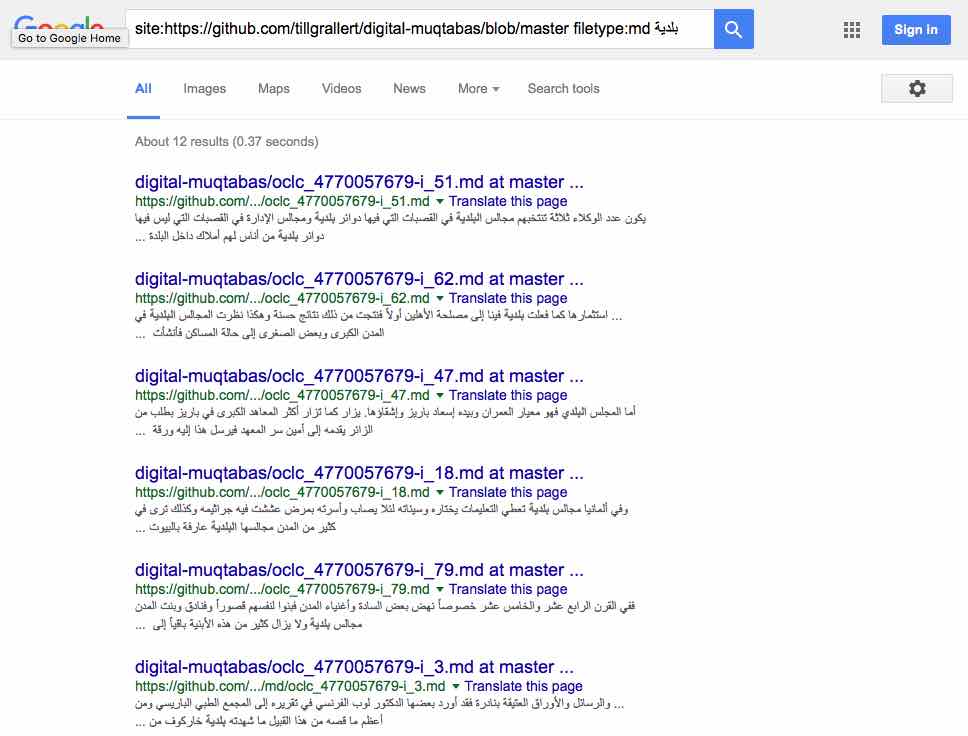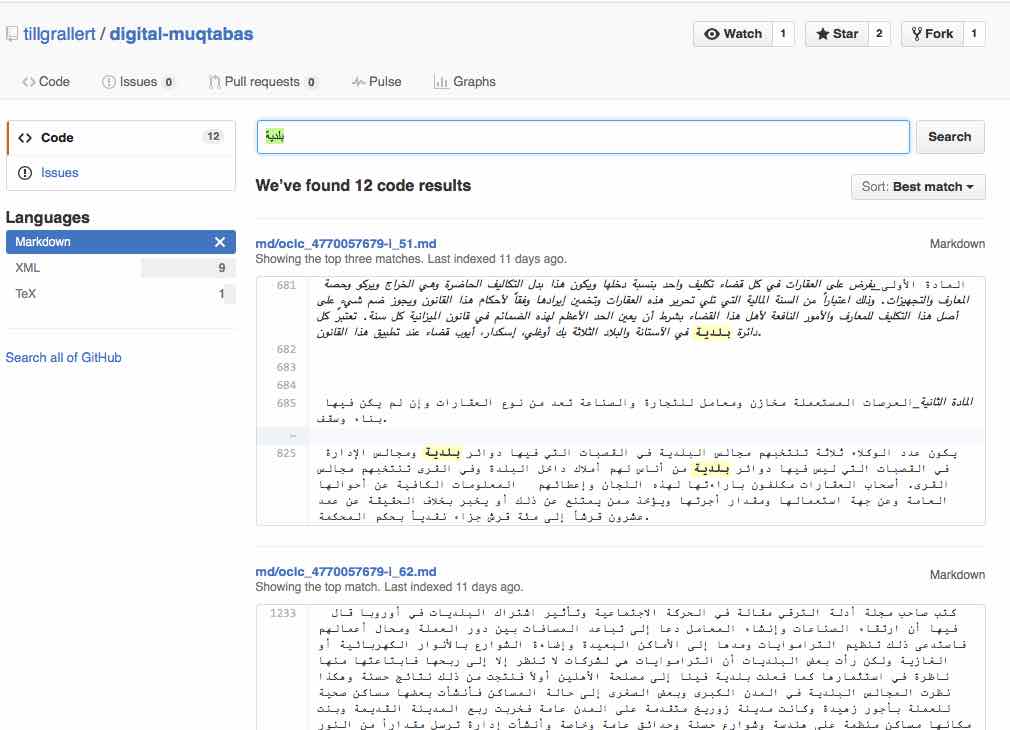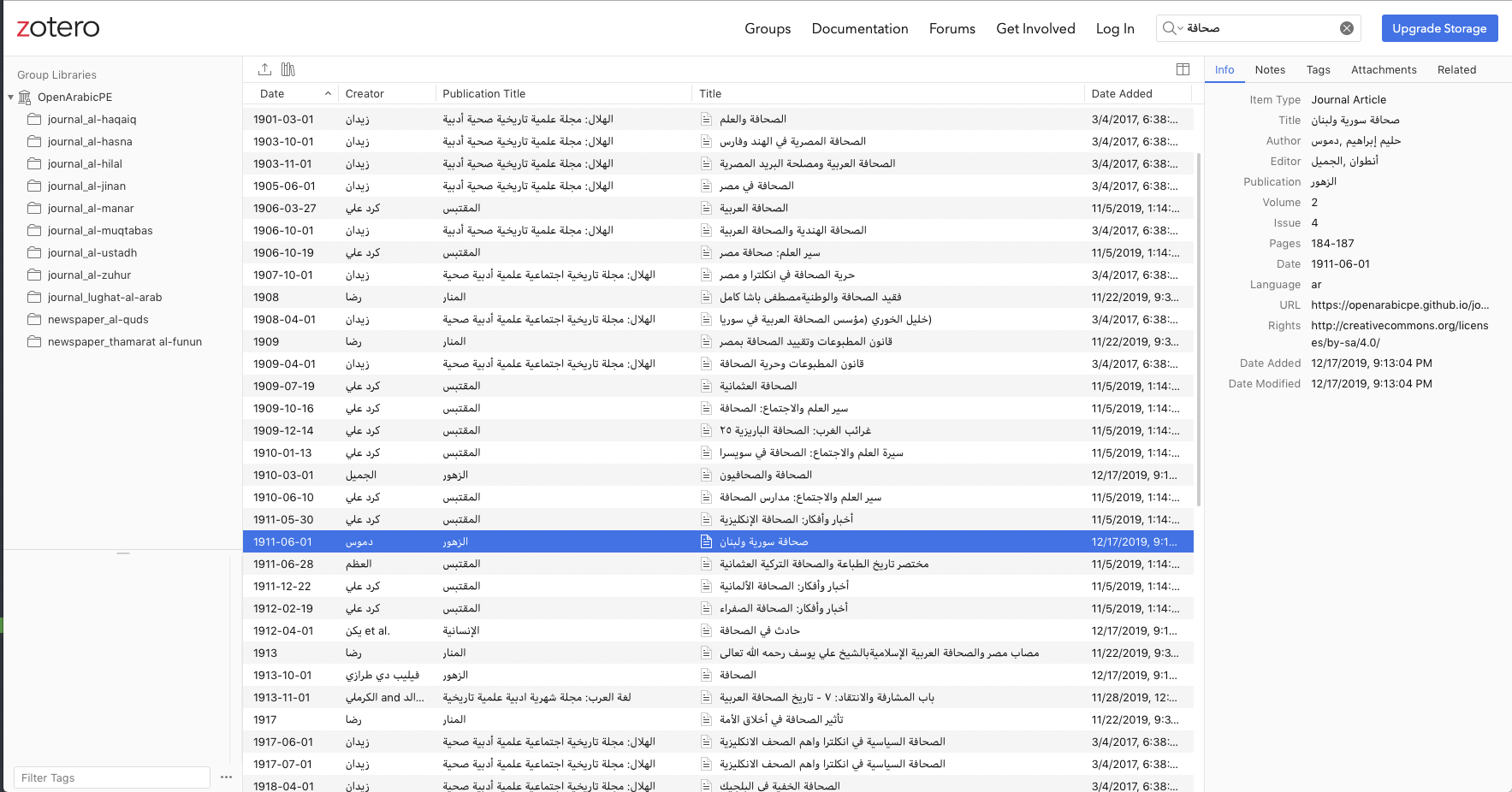Users will, of course, want to search the edition for specific terms and will immediately recognise the lack of a dedicated search field in the webview. But behold, individual issues can be searched through the built-in search function of your browser. Just hit ctrl+f (windows) or cmd+f (macintosh) to search individual periodical issues for literal strings. To search across an entire periodical or the whole corpus, there are three instantly available options:
- Google provides “programmable search engines”, which we have set up to search all of OpenArabicPE’s editions by submitting
sitemap.xmlfiles. Whenever we update our editions, we also re-generate the sitemap and Google will crawl the results. The programmable search engine can be access to the following URL https://cse.google.com/cse?cx=012251040084107011117:jof1v_ejndo and integrated into any webpage:- The programmable search engine has the advantage that, if set to Arabic, Google will not only return literal string matches, e.g. a search for al-ḥurriyya will also return hits for ḥurriyya.
- Google’s web search provides a
site:operator that can be extensively manipulated:site:https://openarabicpe.github.io/ filetype:xml search stringwill search the XML files for all editions hosted viagh-pagesof repositories belonging to OpenArabicPE.site:https://openarabicpe.github.io/journal_al-haqaiq filetype:xml الحريةwill search all XML files of the edition of ʿAbd al-Qādir al-Iskandarānī’s al-Ḥaqāʾiq for the word al-ḥurriyya (liberty).- the [
filetype:] operator is used to limit the scope of the search to a particular file type. Other options would befiletype:mdfor plain text markdown files,filetype.bibfor BibTeX files etc.

-
Search the GitHub repository of the periodical you are interested in, such as al-Muqtabas. This allows for browsing and searching and displays search results in context.

-
The public Zotero group “OpenArabicPE” provides bibliographic metadata for all articles and sections, including author names, titles, publication dates, volume and issue numbers etc. Each reference links to the webview. The Zotero group can therefore be used as a port of entry to our editions.
